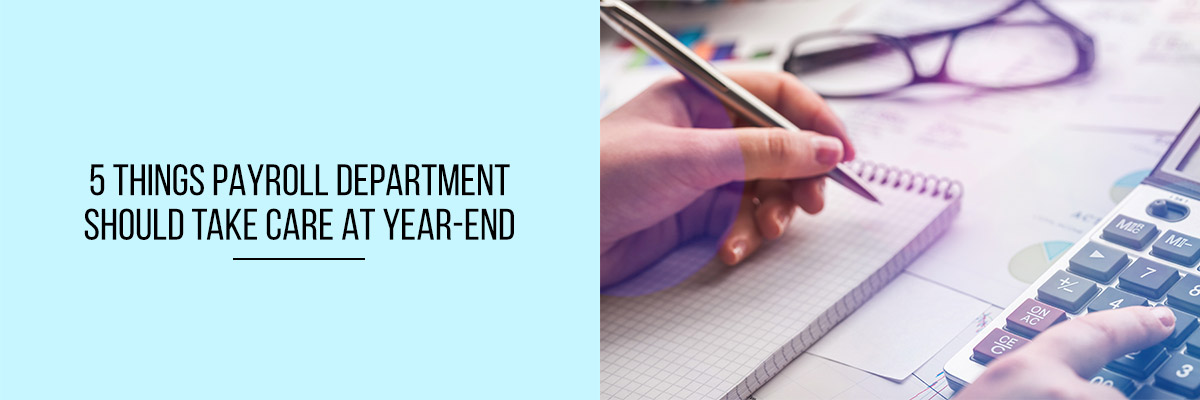The year-end process of payroll departments is important for all organizations. Whether you are running a small business with very few employees or a large company with thousands of employees, there are certain annual activities that your payroll department needs to complete as per federal and state laws.
To help you better understand, prepare for the year-end and make sure you don’t miss out on anything important at your annual end, here is a list of 5 things payroll departments should take care of at the year-end:



1. Complete Tax related paperwork and formalities
Year ends are a busy time for payroll departments as the responsibility load for income tax filing and transaction loads increase. Payroll Departments are required to submit income tax proof that matches the declaration you are presenting to the IRS. Although most of these documents are required at the year-end, most of them are to be collected since the start of the tax year, and documented in the proper way to avoid losing data and information.
2. Cross-checking data and updating
It’s not rare to miss out on information on employee data and find gaps when those data are required. Payroll Departments are needed to cross-check the already-existing data and fill out the gaps for the next year. This includes checking all the employee data such as their personal details, ID card numbers, tax ID, exempt information, etc.
3. Clear Leave Accounts
In most states and organizations, employee leaves and holidays are accounted for calendar-year based. And other companies simplify the procedure for their payroll departments and do the accounting at financial year-end. Either way, you need to make sure that the accounts are compliant as per the policies. It’s important to get all the pending leaves cleared for all employees.
4. Tax filing/ tax returns
As monthly salaries are deposited to the employees, employers withhold the tax amount which then the organization is bound to submit and file tax forms to the IRS on a quarterly basis. Payroll departments need to make sure all previous tax forms are submitted and cleared for the previous quarters before submitting the final tax form.
5. Internal Audits
Payroll departments need to run an internal payroll audit to make sure all procedures are compliant with the laws and there are no miscalculations. This is especially important for large organizations with hundreds or thousands of employees. Running an internal audit will not only find the errors which were made during the report-making process but also avoid an actual audit from the IRS if found any mistakes.
Conclusion
Payroll departments have one of the most critical jobs in any organization, as they have to deal with large amounts and analytics of the company. Their errors are directly reflected in the organization and can bring huge penalties to the organization.


